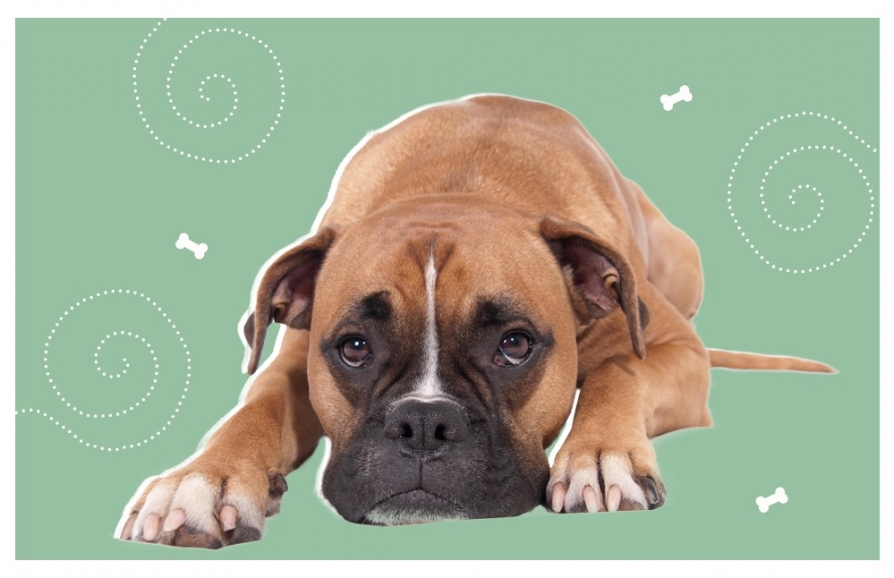Restlessness in dogs
- April 20th 2020

A pandemic is a tough time for all of us, and that includes pets. With India’s lockdown extended to May 3 rd, we find ourselves stuck at home and trying to continue our work and home life with some semblance of normalcy. Some of us are cooking more, others reading—in short, we’re all finding our ways to cope.
Things have changed for your pet too. It may not seem like it—after all, they still go out for their daily walk, you feed them at the same times, and (bonus!) you’re now around all day. So why is your dog restless?
Why your dog may be restless
Disruption to normal life
Your pet can sense that life is not normal. If you had domestic help who was around all day, they’re now no longer coming to work—which means your pet misses them. If you had a dog walker to help out on your pet’s walks while you were at work, then this too has been disrupted. And you being around all day? Definite bonus, but also not what the schedule normally looks like.
Socialisation opportunities
Socialisation opportunities have changed as well. If your pet went on their walk with a dogwalker, then they probably shared that walk time with a bunch of other dogs. They may have gotten used to exploring the neighbourhood with friends and might be confused about why this isn’t happening anymore. Similarly, you most probably can’t take your dog to the local park. Even if the park is still open, it wouldn’t be as populated as before—another disorienting experience for your dog.
Exercise
Your dog may be feeling a touch of cabin fever. Sure, you take them out every day for their walk, but the walks are not as long and are restricted to once a day. You may be home all the time now but you’re probably still working, which means there isn’t that much time for play as your dog might need. And there aren’t any new guests dropping by the house for tea or a chat—so they have no new stimuli to distract them or new people to play catch with. This means your dog has a whole lot of energy and nowhere to put it.
Anxiety
Dogs are generally easy-going and happy creatures, but they are also extremely sensitive. If you’ve been feeling anxious during the course of this pandemic, this will affect your dog. All of us, in some way or another, are feeling a touch of anxiety: it’s a natural response to an event that disrupts our way of working. Anxiety is our brain’s way of processing the event and living through it. Your dog may be picking up on those signals and responding to it.
What does restlessness look like in my dog?
The signs of restlessness are pretty easy to tell:
- Excess
energy
- Easily excitable
- Pacing
- Circling
- Trouble
sleeping
- Adjusting
their position repeatedly
How do I ease restlessness in my dog?
The best way to manage restlessness in your pet is to make as much time as possible for play. Play with them to help release excess energy. (For tips on how to exercise your dog indoors, check out our article: ‘ How to exercise and entertain your pet during COVID-19’ .) Sit next to them and pet them repeatedly so that they feel soothed.
If your dog is displaying symptoms of anxiety, create a corner of the house that they can call just theirs. Fit it out with their favourite blankets, stuffed toys and chew toys. Consider playing soothing music to help them cope with the strangeness of their circumstances. With some exercise, time and love, most dogs will be just fine and will adjust to life as it is.
Other reasons for restlessness in dogs
Of course, your dog may not be restless because of the lockdown: there are other, everyday causes that you may need to check for.
Ticks and fleas
If your dog is infected with ticks or fleas, this could lead them to scratch a lot and consistently change position. Make sure your dog’s coat is clean; if you do find ticks or fleas, make sure you disinfect the house (especially your dog’s bedding or places that they frequent).
Rashes
In some cases, your dog may have developed a skin infection that’s causing them discomfort—hence the moving around. Check their paws and skin carefully for rashes or wounds. If you find any, call your vet for the recommended next steps.
Pain
If your dog is in pain, then they are likely to be restless. Ticks, fleas and rashes are outward afflictions that can be searched for and found, but your dog may be suffering from an illness that you can’t spot with the naked eye. These include:
Tape worms
· Cushing’s
disease (which causes inflammation)
If you feel your pet’s restlessness may be medical in nature, please call your vet. They will be able to diagnose the problem and advise next best steps.
Comments
No posts found
